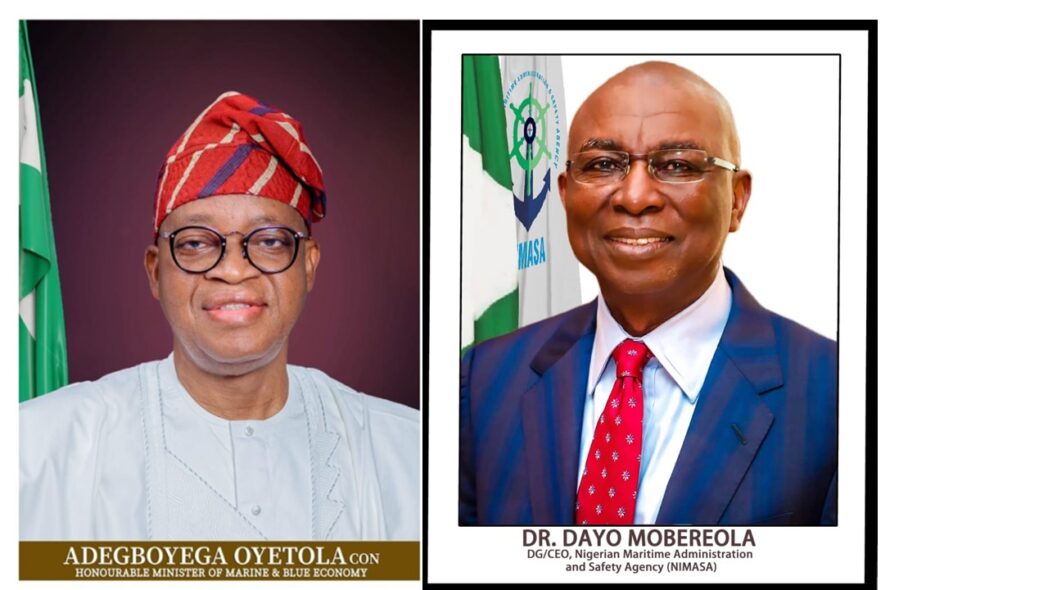
As Nigeria prepares for another IMO elections
By Osagie Edward
Nigeria is set to contest for a seat in the International Maritime Organization (IMO) Council under Category C, a strategic move with significant potential for both the country and the wider African region.
The Category C seat represents an opportunity for nations with maritime interests to influence global maritime policies. For Nigeria, securing this position is not merely about gaining a voice on the international stage: it is a vital step toward fostering sustainable economic growth, promoting regional cooperation, and advancing discussions on safety, security, and environmental standards within the maritime domain.
The announcement of Nigeria’s intention by the Honorable Minister of Marine and Blue Economy, Adegboyega Oyetola CON, during the World Maritime Day parallel event in Spain, has garnered significant attention both home and abroad.
As a strong contender for Category C, Nigeria’s over 853 kilometers of coastline along the Gulf of Guinea positions it to influence regional and global trade flows. lts ports handle over 70% of goods destined for West Africa, and its Exclusive Econo mic Zone (EEZ) is rich in marine resources and shipping routes.
Despite challenge s like piracy and environmental threats, Nigeria has taken decisive steps to enhance maritime security through initiatives such as SHADE Gulf of Guinea and the Deep Blue Project, which deploy technology and trained personnel to enhance mariti me security and combat piracy in the Gulf of Guinea. These efforts have led to a reduction in incidents, demonstrating Nigeria’s commitment to securing its waters and ensuring the safety of maritime trade across West Africa.
Notably, IMO Secretary-General Arsenio Dominguez has acknowledged Nigeria’‘s role in stabilizing the Gulf. During a meeting with the DG NIMASA recently, he commended Nigeria for providing leadership in the region. He said and | quote “While the recent insecurity i n the Red Sea meant more pressure for the region, the world had feared the worse.
He said and| quote” When it comes to security | want to appreciate Nigeria for enhancing security in the Gulf of Guinea. At the beginning of the year when the situation in the Red Sea led to an increase in traffic in the gulf of Guinea. But we are happy that the situation has remained the same. We at the IMO will continue to appreciate Nigeria”. Dominguez stated.
It is on record that for 36 months and counting, Nigerian waters, which used to be t he hub of piracy, have not witnessed any incidents. Member ship in Category C will no doubt allow Nigeria to bring crucial insights to the IMO’s discussions on maritime security, which could drive stronger policies to ensure security for vessels and their crew members.
Like other developing nations, Nigeria is vulnerable to the impacts of climate chang 6, particularly along its coastlines, which face rising sea levels, erosion, and pollution. By being elected into the IMO Council, Nigeria can contribute significantly to the development and adoption of sustainable practices in the shipping industry, ensuring that international standards align with the needs of coastal and island nations.
Nigeria’s experience in managing marine litters via tools such engaging marine litters marshals and developing marine litters action plan amongst other initiatives tow ard cleaner shipping practices would enable it to advocate for policies that minimize the environmental footprint of the maritime sector.
By participating in IMO discussions, Nigeria hopes to contribute to policy frameworks that will support blue economies in developing countries, advocating for fair tra de practices, investment in infrastructure, and capacity building in maritime industries.
Nigeria’s election into the IMO Council would ensure that the maritime nations of West and Central Africa region MOWCA and by extension, Africa has a stronger presence and that African perspectives on security, environmental protection, an d economic development are integrated into global strategies.
With over a year until the elections in the last quarter of next year, Oyetola’s announcement in Spain marks a significant step in enhancing Africa’s maritime presence. Dr. Dayo Mobereola, Director General of NIMASA, emphasized the agency’s f ocus on technical preparations to meet international standards while enabling stakeholders to excel in their areas.
“We at NIMASA have engaged with the IMO technical team to address gaps identified in the last audit. We’re also enhancing communication with member states via the IMO GSIS platform. While we focus on technical aspects, our supervising Ministry will provide the political support needed for Nigeria’s return to the IMO Council ,” he stated.
Unsuccessful attempts in the past decade to return to the Council may lead skeptics to question the Minister’s decision. It is essential for Nigerians to view the situa tion as a cup of water half-full rather than half-empty. With global recognition of our efforts thus far, new alliances built over the years, and Nigeria’s renewed commitment to the ideals of the IMO, coupled with President Bola Anmed Tinubu GCFR’ s establishment of a full-fledged Ministry for the Marine and Blue Economy, perhaps this is the best time to contest the elections with renewed vigor.
African nations like Kenya, Morocco, and Egypt already hold seats in Category C, which means Nigeria must present a compelling and differentiated case to gain the support of IMO members.
All stakeholders should rally around the Ministry of Marine and Blue Economy and all its Agencies by bringing to the table their expertise and input to achieve success for Nigeria. With a unified approach, diligent preparation, and strategic focus, I am confident in Nigeria’s potential to secure a seat on the IMO come 2025.




